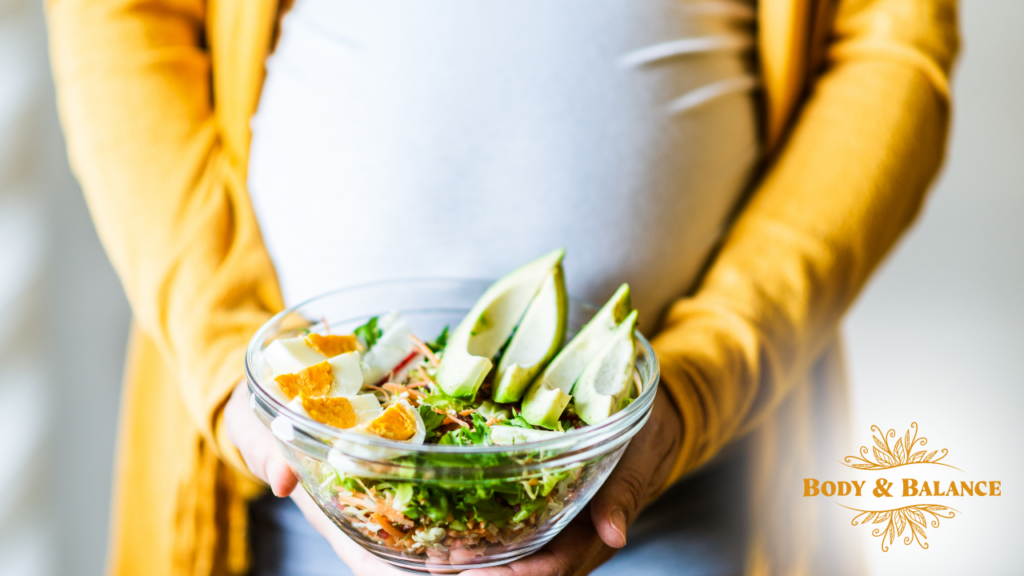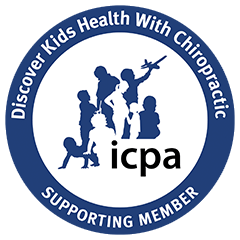Pregnancy Nutrition: What to Eat, and What to Avoid During Pregnancy
As a pregnant mother, one faces endless decisions when it comes to food. Often, there are misconceptions about what to or not to eat while pregnant. In her book, Real Food for Pregnancy, Lily Nichols discusses the importance of eating real food and other tips for pregnancy nutrition. That is food that is derived from simple, holistic ingredients. Knowing what is healthy for both mother and baby will result in a healthier and more positive pregnancy.
Even if you are not pregnant, but simply considering becoming pregnant, this advice is also well worth a read. It is never too soon to start prepping your body to play a part in caring for a little one. Much like you would baby proof your home, there are ways in which you can eat right both before and while you are pregnant to aid in keeping your baby safe.
Nichols Suggests the following when choosing foods while pregnant:
- Do Not Double Food Intake When Eating for Two: While this is something everyone hears while pregnant, the reality is the only thing that needs to increase is calories. Even then, a pregnant woman may only need 70 more a day. If a pregnant woman consumes between 70 and 300 calories in the form of a small snack they should be fine.
- What Should Increase: You should increase your intake of vitamin A, folate, vitamin B12, choline, iron, and iodine.
- You Don’t Need a Ton of Carbs: While many modern prenatal diets suggest that you need a massive carb increase while pregnant, Nichols suggest you only need 90-150 grams of carbohydrates per day. She also suggests unprocessed, low-glycemic carbs such as grains, legumes, fruit and milk or yogurt.
- Increase Your Protein: You should increase your protein optimally to 100 grams per day. Pasture raised beef, eggs, nuts, and bone broth are some wonderful options.
- Healthy Fats Are Great but Stay Away from Omega-6: Fats from unprocessed foods that would include meat and dairy are necessary for nutrients while pregnant. However, you should limit fats containing Omega-6 such as vegetable and man-made trans fats.
- Drink Fluids: Your baby will literally be swimming in fluid, so you need to increase your fluid intake. Nichols suggests 100 oz. a day.
- Be Sure to Limit Your Alcohol and Caffeine Intake: While Nichols does not say to have no alcohol, she encourages having at maximum only a few sips of wine on occasion. As far as caffeine, specifically coffee, she recommends keeping intake at or below 200 mg per day.
- Stay away from refined carbs, foods high in sugar, artificial sweeteners, soy, trans fats, and vegetable oils.
Supplements and Toxins, Oh My!
While you should do your best to derive all your nutrients from natural, unprocessed foods, you may still need to use supplements to complete your nutrient intake.
- Pre-Natal Vitamin: Look for a prenatal vitamin that says it contains activated B vitamins.
- Vitamin D: When it comes to vitamin D, every woman is different. Have your doctor perform a lab test called 25-hydroxy vitamin D. Nichols recommends 4,000 IU per day for maintenance, but some mothers may require more. You need vitamin A, vitamin K2, zinc, and magnesium to metabolize vitamin D.
- Omega-3 Fats and Fish Oils: The Omega-3 fatty acid known as DHA is essential for your baby’s brain growth. At bare minimum, take 300 mg of DHA. A DHA food supplement is especially important if you do like the food sources high in DHA- that being most fish.
- Probiotics: Known as “good bacteria”, probiotics help to balance out your overall health. Taking a probiotic may also help with blood sugar levels. The baby’s first exposure to bacteria is through the placenta during gestation, therefore it is important to keep up the maintenance of your microbiome, which is the bacteria in your body.
- Calcium: While most mothers will get enough calcium from what they eat, there are some women who need to be mindful of how much calcium they are absorbing. If you still need a supplement, be aware that calcium and iron battle one another for absorption. Try to take your calcium and iron supplements at different times of the day.
- Magnesium: A magnesium deficiency is quite common, even more so during pregnancy. And while there are few obvious signs, muscle cramps can signify that your body needs more magnesium. Another side effect is nausea. Women taking magnesium have stated that they are less nauseous. Begin supplements at 100 mg and gradually increase to 300 mg a day. Be aware that a possible side effect can be diarrhea.
- Iron: While pregnant, it is necessary for iron levels to increase. This is because your body is producing more red blood cells. An iron deficiency may increase your risk of having a premature birth or a low-birth-weight infant. Try getting as much iron in your diet as possible. The best source is liver and organ meats. Iron supplements tend to be so poorly absorbed and cause side effects, which is why it is recommended you get as much iron from your diet, and not necessarily supplements.
- Toxins: While eating the right food and taking the correct supplements to balance your body out is important, it is also important to remember environmental aspects that can negatively affect your baby. Avoid things like fragrant detergents, plastic and aluminum, perfumes, fluoride, mercury, and pesticides. You cannot eliminate exposure, but you can reduce it.
Taking Care of You During Pregnancy
Pregnancy is a roller-coaster that puts your body through a lot. From nausea to heartburn, it isn’t something you have to look forward to, but there are ways to alleviate some of the discomfort.
- Nausea and Vomiting: There is no cure for nausea, but there are ways to ease it. Avoid drinking too much during a meal and eat slowly. Avoid strong odors. Add ginger, vitamin B6, and/or magnesium to your supplements.
- Heartburn: Don’t use antiacids and avoid eating too much at meals. Try drinking your fluids between meals. Lower your carbs, especially sugar and refined carbs. Practice good posture.
- Constipation and Hemorrhoids: Constipation is never fun, especially when you are carrying around a few extra baby pounds. Be sure you are drinking more water and eating foods rich in fiber.
- Weight Gain: It is inevitable that you will gain weight during pregnancy. The most important thing to remember is to eat nutrient weight foods, consuming what feels right for your body.
- High Blood Pressure and Sugar: If you are experiencing high blood pressure, use high quality unrefined sea salt, and limit sugars. Eat low carb foods and high antioxidant fresh produce. Consider taking magnesium, calcium, and vitamin D supplements and be sure you are consuming choline. Exercise regularly and drink plenty of fluids.
- Be sure to be mindful of how you are feeling and do your best to manage your stress. By being mindful, you can regulate what makes you feel happy and sad as you are dealing with crazy hormones and bodily changes. You can increase your chances of experiencing the wonderful moments you do have while being pregnant.
Chiropractic Factor: Chiropractic Care During Pregnancy
Your Doctor of Chiropractic care is well versed in preconception and prenatal nutrition. They are there to recommend prenatal vitamins as well as possible dietary suggestions. Also, regular prenatal chiropractic care can be extremely helpful on balancing your hormones and enhancing your digestive system.
Your chiropractor may also be able to recommend a regime of exercises to do to relieve sore muscles. Chiropractic care can also help alleviate any sort of discomfort you might have due to weight gain.
A chiropractic adjustment may improve your quality of life and help relieve many common pregnancy symptoms like poor digestion, elimination, headaches, fatigue and insomnia.
A chiropractic visit may also help relieve discomfort due to typical pregnancy symptoms. An adjustment may aid in relieving lack of sleep, minimize acid reflux, and enhance nerve communication
Note to reader: While this newsletter is an excerpt of Nichols research, we encourage you to read her book, Real Food for Pregnancy.
To learn more about the benefits of chiropractic care. Click to schedule a complimentary consultation with Body & Balance’s practitioners today.
RESOURCES: DR. CLAUDIA ANRIG-THE WELLNESS FAMILY



